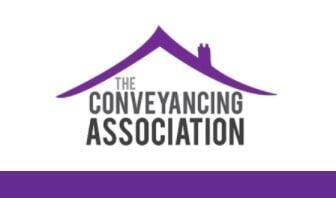Introduction
When the Leasehold Reform (Ground Rent) Act 2022 comes into force on the 30th June 2022 it will restrict the Ground Rent payable on most types of new Leases of residential properties in England and Wales.
Leasehold Minister, Lord Stephen Greenhalgh said:
“This is an important milestone in our work to fix the leasehold system and to level up home ownership.
Abolishing these unreasonable costs will make the dream of home ownership a more affordable reality for the next generation of home buyers.
I welcome the move from many landlords who have already set ground rent on their new leases to zero and I urge others to follow suit ahead of this becoming law.
The move forms the first part of the government’s reform package that will make homeownership cheaper, fairer and more secure.”
The new legislation is part of the Government reforms aimed at making leasehold ownership “cheaper, fairer and more secure” and whilst this will be achieved for purchasers of new leasehold residential properties, the changes will not provide any relief to owners of existing leasehold properties, some of which may be adversely affected by escalating Ground Rents or short unexpired Lease terms.
The key to resolving such issues on existing leasehold properties will lie in the second stage of the Leasehold Reform legislation proposals that the Government is committed to bringing in. These proposals cover a more significant range of issues than those in the first bill and seek to simplify the way in which the cost of extending a Lease or buying a freehold is valued
.
Extending the term of an existing Lease
The current proposition is for leaseholders to be able to extend their Leases to 990 years, effectively ruling out the need for future Lease extensions, with Ground Rents effectively fixed at zero. The main changes could include:
- Abolishing the “marriage value” element – that is, the increase in property value once the Lease has been extended – and only now applies when the Lease is currently under 80 years.
- Creating a new, standardised method with an online calculator which can be used for assessing the cost of extending the Lease of a property and also the cost of purchasing the freehold interest.
- Providing leaseholders with the option of buying out the Ground Rent on their home without having to extend the Lease term.
- Giving owners of houses as well as owners of flats the right to extend the term of their Leases at zero Ground Rent.
The Government believe that these proposed changes could save leaseholders up to tens of thousands of pounds.
Is there a timescale for the implementation of the second stage reforms?
There is presently an element of uncertainty because the Government has not given an exact timescale for the second bill.
As a result, it is currently unclear when the secondary changes will come into effect and there are fears that leaseholders who are presently in limbo could continue to be left there for many years.
Concerns have also been raised that any delays before the introduction of the second stage of the reforms will give freeholders time in which to lobby for changes that could alter the proposed leasehold reforms for existing properties.
What if a Leaseholder cannot wait for the second stage reforms?
Whilst many leaseholders will be prepared to wait to see what the second stage reforms look like once legislation has been agreed, others will not have the time to do so because of factors such as wanting to move home or remortgage their property.
The leaseholder who is in a hurry to address their present situation may actually exacerbate their problems by entering into informal Lease Extensions with their Landlords that could leave them locked into paying Ground Rent, when they really don’t need to. This is because when an existing Lease is varied as part of a voluntary renewal (unless treated as a deemed surrender and regrant), the Ground Rent is only zero for the new period of time added to the Lease – for the remaining period of the old Lease, the Ground Rent continues as before.
Anyone considering extending their Lease should obtain specialist legal advice because for most leaseholders, the best approach right now is likely to be the formal process to obtain a Statutory Lease Extension in a process called Leasehold Enfranchisement.
What is Leasehold Enfranchisement?
Leasehold Enfranchisement provides a statutory solution that often makes a property more mortgageable and attractive to prospective buyers and is presently the only way to guarantee (subject to qualification) an immediate Lease extension and a zero Ground Rent. The Leasehold Enfranchisement process usually takes between four to six months to complete.
Although Leasehold Enfranchisement is often seen as a more expensive process than a voluntary Lease extension, in reality it provides absolute certainty.
In addition, the voluntary approach to a Lease extension has no guaranteed peppercorn/zero Ground Rent and involves negotiating a new leasehold term with the Landlord instead of a guaranteed 90-years being added on to the original Lease.
Further information can be found at The Leasehold Advisory Service - https://www.lease-advice.org/



